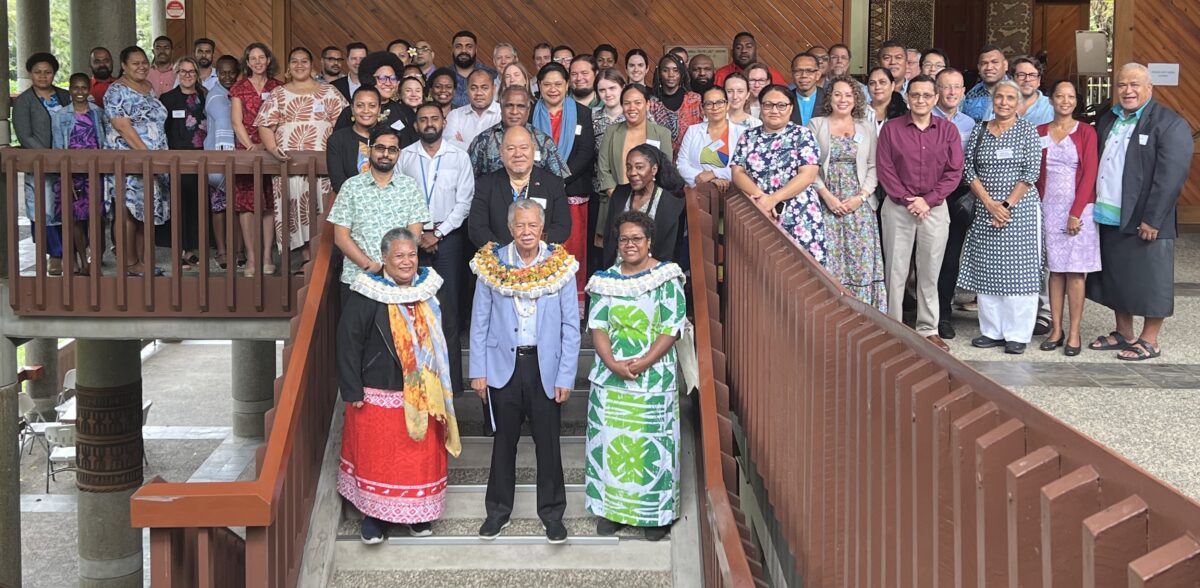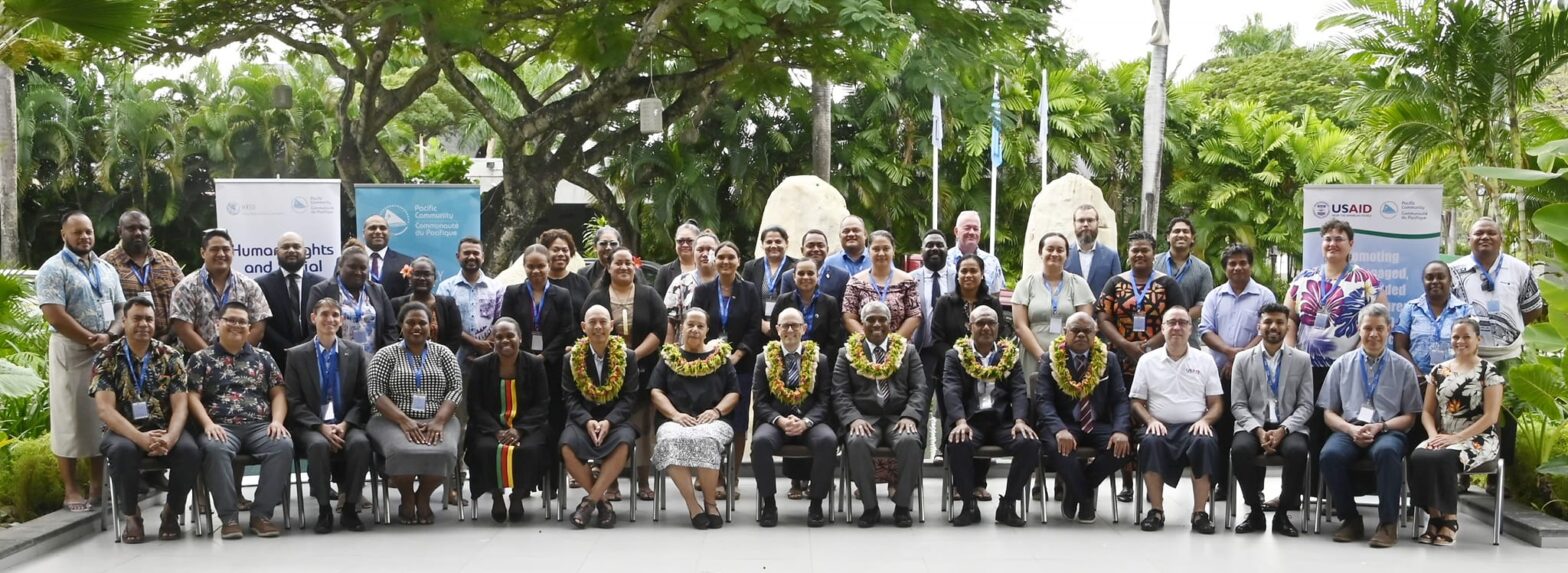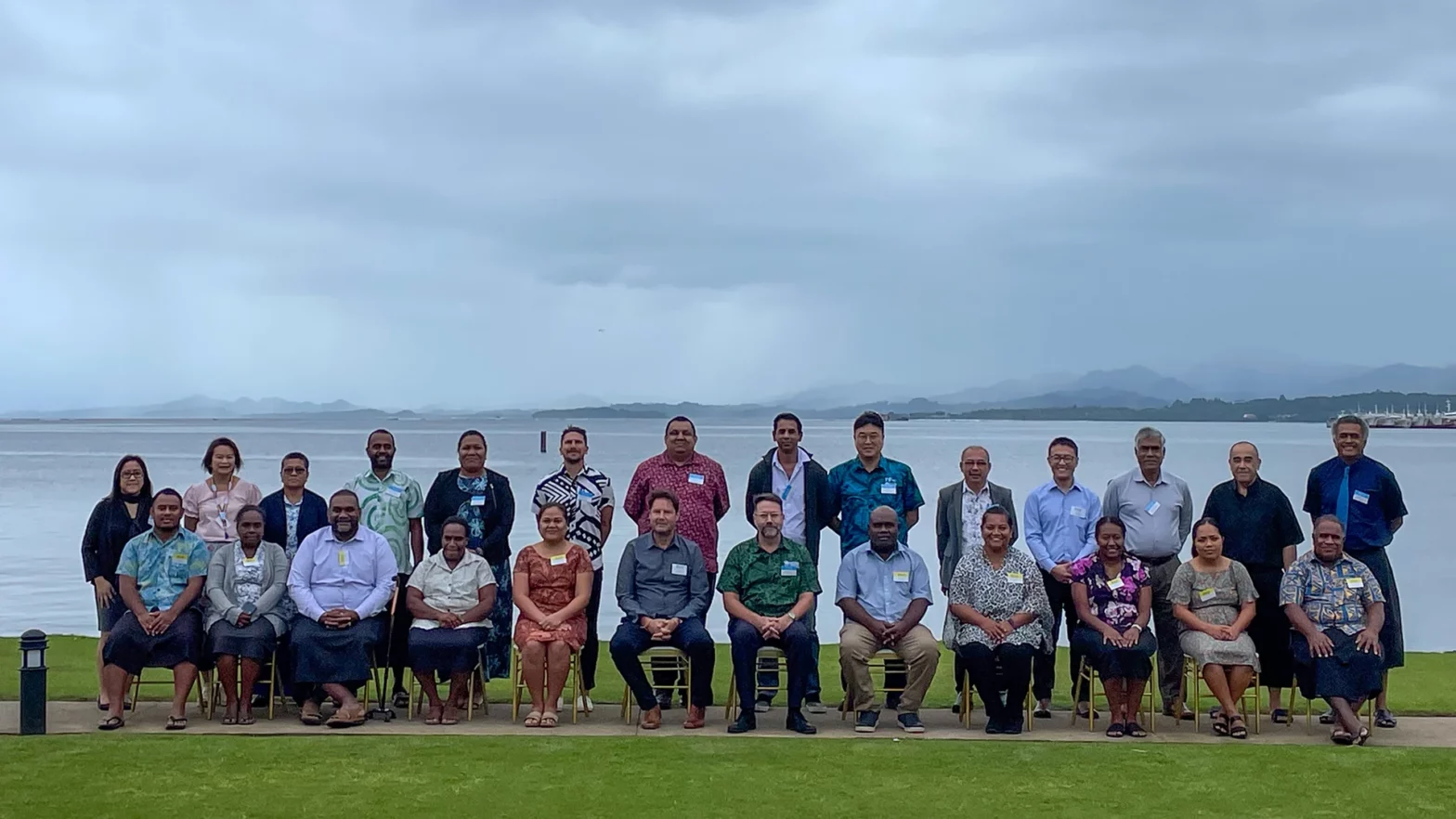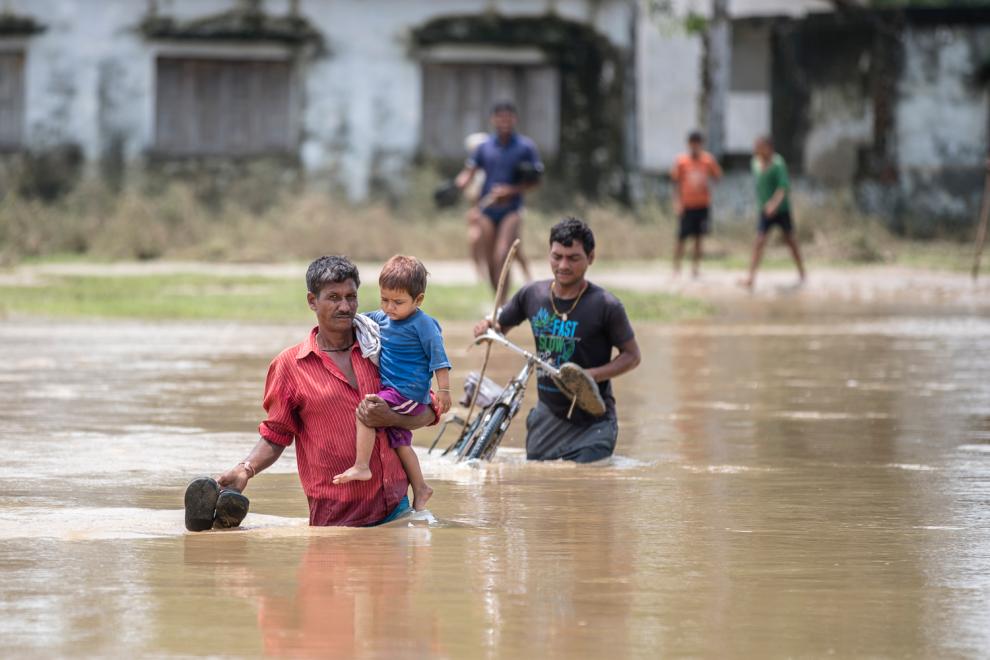Experts met in Suva, Fiji to discuss optimal financing strategies and policies for coastal nature-based solutions for Pacific Island nations and territories.
The Blue Pacific Coastal Nature-based Solutions Policy & Finance Workshop, taking place at the Pacific Islands Forum from July 18 to 20, brings together Pacific government delegates, donors, and policy and finance experts, to advance the nature-based solutions to climate change in the Pacific region.
The workshop was jointly organized by Conservation International (CI) and the International Union for Conservation of Nature (IUCN), in collaboration with the Pacific Islands Forum Secretariat (PIFS) and the Office of the Pacific Ocean Commissioner (OPOC).
Nature-based Solutions are actions to protect, sustainably manage and restore natural and modified ecosystems that address societal challenges effectively and adaptively, simultaneously benefiting people and nature.
Pacific Islands Forum Secretary General Henry Puna, who officiated at the opening of the workshop, acknowledged the value of nature-based solutions for Pacific Islanders to reconnect with their past, to rebuild their futures.
“For us, nature-based solutions may mean something as simple as relearning ways of the past: he said.
“It could also mean something as complex as a bio-engineered seawall, comprising mangrove hedges, natural boulders, bunding and vetiver grass such as the Viro Village Hybrid Coastal Protection Programme in Ovalau [Fiji].”
Puna highlighted the need to see a greater investment in nature, including concrete and real efforts to value ecosystems.
“We need to see reinvigorated partnerships at all levels, to mobilise financing and most importantly, political will.”
“The effectiveness of these innovative solutions, depends on our collective efforts.”
He reminded participants of the need to raise local awareness of nature-based solutions as agents of societal change, viewing it as an opportunity “to bring new insights to old approaches.”
Conservation International’s Vice President for the Pacific Region, Susana Waqainabete-Tuisese, highlighted their project in Fiji’s Navitilevu Bay, an area heavily impacted by cyclone Winston in 2016, resulting in extensive loss of mangroves.
“In partnership with communities and the Fiji Government, we’re currently replanting mangroves over an extensive area, which aims to create a ripple effect of benefits for local people, biodiversity, climate and the economy,” said Waqainabete-Tuisese.
“Healthy mangrove forests store vast amounts of carbon so are an important natural climate solution, however, the benefits from this work do not stop there. Mangroves are a natural buffer that can reduce storm surges and coastal erosion. And as fish breeding grounds, healthy mangroves also improve coastal fishing yields. As such, the communities taking part in this mangrove restoration project can look forward to improved livelihood and food security, and overall, more prosperous and sustainable futures. This is the promise of nature-based solutions, turning environmental recovery into opportunities for human development.”
The workshop will explore financial pathways to support the sustainable implementation of nature-based solutions initiatives, aimed at helping Pacific nations understand and leverage diverse funding sources.
Maria-Goreti Muavesi Regional Director ad interim of IUCN Oceania highlighted the Kiwa Initiative as an exemplary Pacific-focused project in sustainable financing for nature-based solutions.
The initiative was launched in 2020 with 31 million euros (USD 32.3m) which has amassed to more than 75 million euros (USD 83m) from donors: European Union, Agence française de Development (AFD), Australia, Canada and New Zealand. She cited the intervention “timely as the region continues to deal with the challenges posed by climate change.”
“Our mission through the Initiative is to strengthen Pacific Island resilience to climate change. We do this by using nature-based solutions for ecosystem management and biodiversity conservation, and with the help of financial grants and technical expertise, we aim to achieve our goals,” said Muavesi.
“Funding for nature-based solutions is not just about resource allocation, it’s about investing in our planet’s future. So, it’s vital we secure lasting funding for these solutions. It’s through sustainable financing and our technical expertise that we work to enhance the climate resilience of Pacific Island communities – financial sustainability for nature-based solutions is fundamental to realize its true potential.”
Through the Kiwa Initiative, IUCN Oceania currently manages 14 local projects funded through small to medium-sized grants, specifically targeting local communities in the Pacific region including the French overseas territories.
The workshop is an important platform to share regional experiences and explore the potential for nature-based solutions to strengthen resilience in the Pacific. It offers sessions on the role of nature in climate change adaptation, an overview of the finance and policy tools available to support nature-based solutions, and the potential of blue carbon ecosystems for climate adaptation and mitigation.
Delegates will gain valuable knowledge about the current state of global policy processes related to nature-based solutions and discuss financing options and strategies for their integration into national commitments for climate adaptation and mitigation, biodiversity protection, and sustainable development.
This story was originally published at Conservation International on 18 July 2023, reposted via PACNEWS.




